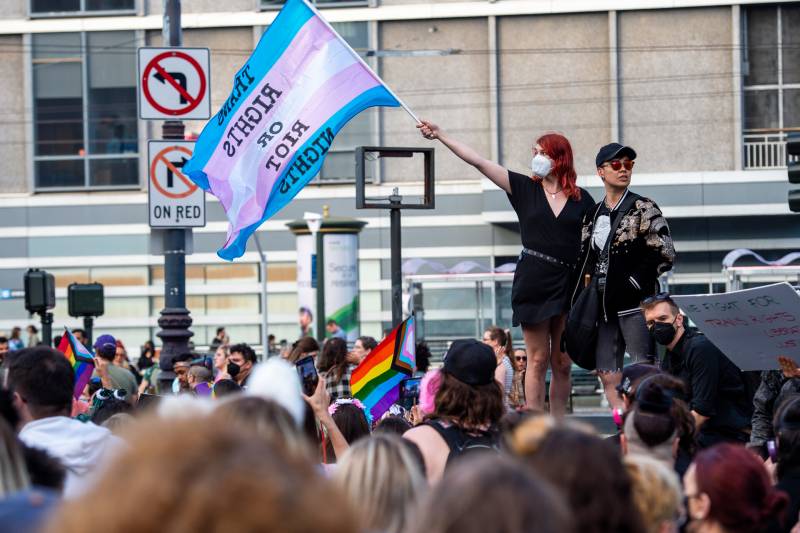D
uring Pride last summer, I was having lunch with a friend of mine, a trans man who’s been living his truth for decades. The Proud Boys’ attack on the San Lorenzo library’s Drag Queen Story Hour had just happened earlier that day, and he was telling me how frightened it made him. I was honestly taken aback: My friend, a very sizable man most people don’t read as trans, had never said anything like this to me in all our years of friendship. It was telling that, even in the Bay Area, he no longer felt safe.
At that point I wouldn’t have imagined that, less than a year later, a high-profile speaker at last week’s Conservative Political Action Conference would call for what amounts to the eradication of trans people. It’s clear that my friend was not afraid because of an isolated incident, but rather because of a pattern of bullying and abuse that has been directed at trans people for years, and is reaching a fever pitch.
In the pages of The New York Times and comments on TikTok, anti-trans rhetoric has become a full-blown moral panic, spreading complete falsehoods about trans people and the lifesaving medicine we use to be our true selves. And on top of the cruel cultural backlash, to date, nearly 400 bills have been introduced in state legislatures in 2023 seeking to criminalize or otherwise restrict the lives of transgender and gender-nonconforming (GNC) people. This represents a significant increase over 2021 and 2022, years that set records for legislation aimed at the trans community.
Taken together, these unprecedented attacks on transgender medical care, rights and culture have had enormous impacts on trans and GNC people, as well as the mental health providers who serve them. Reported rates of depression, anxiety and suicidality among trans people have sharply increased, and advocates say this is a direct result of recent hateful legislation. The mental health clinicians who serve these communities in red states are experiencing increased burnout, and personal attacks against these professionals have led them to fear for their own safety.
The same is happening here. As a transgender therapist dedicated to serving my community (in addition to my many cisgender clients), I have seen myself and many of my colleagues struggle to cope with the new onslaughts against trans people. Although the Bay Area — an ultra-liberal bubble within a sanctuary state for trans medical care — is often thought of as insulated from these assaults, the fact is that these laws are already having real and detrimental impacts on trans people here, and the therapists who support them.

S
usanna Moore, a Bay Area clinical psychologist who began serving trans people in 2009, has seen the enormous good that therapy can do for her young clients. “It’s a real privilege to empathize with someone who is trying to feel at home in a self that is not well held by the wider society,” Moore said. “Therapy is also a place where the parents can see their kids really cherished for who they are. That helps the parents stay with their best selves and keep protecting, supporting and nurturing their kids.”



